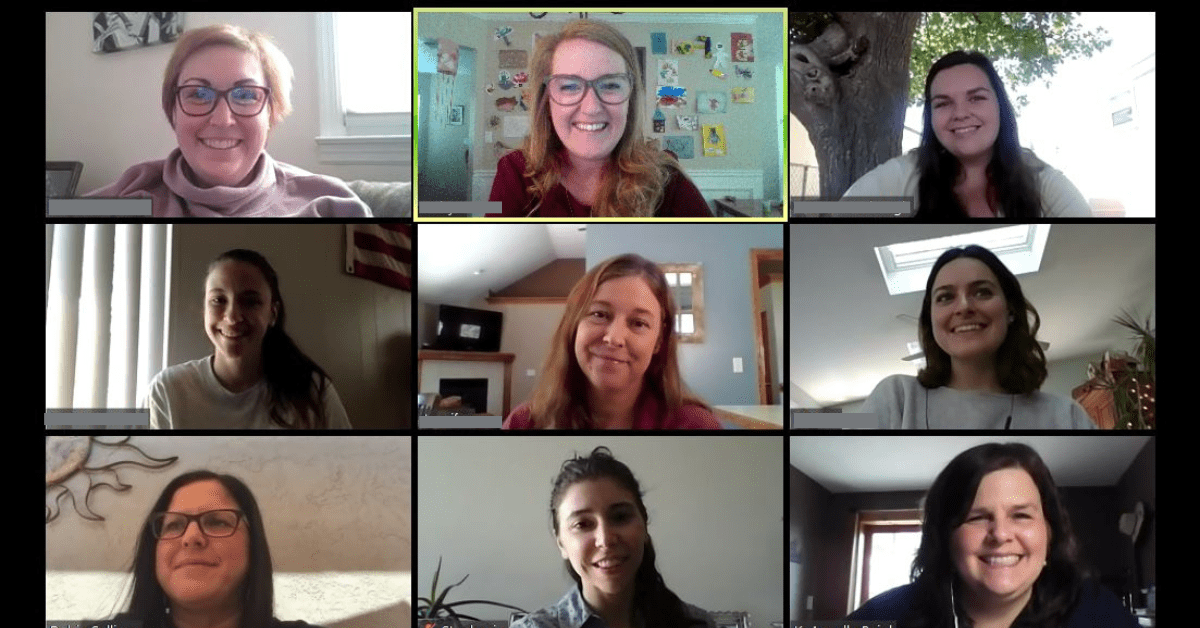
Photo: SiteOne Landscape Supply
Recruiting the next generation of landscape professionals takes dedication. One way to help create a pipeline for future job candidates is by creating a mentorship program.
“From my recruiter standpoint, mentorship is a valuable way to get to know talent prior to hiring them,” says Michele Posehn, senior recruiting manager of diversity/early talent initiatives for SiteOne Landscape Supply. “It allows you to see potential job fit and skills, learn what motivates the mentee, and be that much more prepared to set them up for success in the right role. From a mentee perspective, it’s a great way to learn about a company’s culture and values prior to working for it. You can learn a lot about a company by engaging its employees.”
SiteOne started their mentorship program in 2019 after noticing they didn’t have many young female students in their internship program.
“At the time, I was working with Robyn Moffat, who recognized as well we had an amazing opportunity to SiteOne’s DNA element of continuously improving in action,” Posehn says. “We found a national student organization to sponsor and came to them with the idea of mentoring students. It just felt like a great way to give back to young females and, at the same time, bring talent and diversity to our entry-level and intern roles.”
With SiteOne’s mentorship program, it helps students think about themselves as candidates, consider what management styles they respond to, and what type of company culture they want to look for in a potential employer. Posehn says it also helps them identify the strengths that set them apart.
“We wanted these young women to understand that many other women were out there, ready to help them navigate a path they themselves already walked,” Posehn says. “I believe wholeheartedly that as women, our job is to lift other women up, support where we can, provide advice when needed. We ask students to think about challenging times and how they have or can overcome them and as mentors, even discuss our challenging professional moments.”
She says their mentorship program has allowed SiteOne to brand themselves to a broad candidate pool who may have never heard of them before and showcases the potential career paths at SiteOne. Posehn says they have also been able to hire interns and full-time associates through mentoring, making it a valuable tool in their recruiting efforts.
How It Works
Since starting the program, SiteOne has mentored 75 students across the country through their partnership with Sigma Alpha Education Foundation. Posehn says they are about to start the 2023 mentor cycle and have brought on seven new mentors.
Any female who is part of Sigma Alpha is eligible to apply for a mentor. Mentors meet with their students once a month for a minimum of an hour. Some meet more often than that and others try to meet in person if geography allows.
Posehn says some mentors have invited their mentees to meetups with other female leaders to allow them to network more. During the height of the pandemic, they strived to keep the program going and hosted trivia games and discussions on lighter topics to help during the lockdown.
The program lasts four to six months, but Posehn says they have many instances where they stay in touch well beyond that formalized time period.
“That’s the most rewarding part of mentorship – a continued relationship of advice, support, and camaraderie,” she says.
Tips for Success
Posehn says they asked female leaders in their organization to participate as mentors and year after year, they return to participate. Those mentors often recommend other female leaders as well. She says they prefer to have mentors who have been in their role for a certain period of time.
“You can get so much development out of it for everyone involved,” she says. “I have mentored several times and I always learn something about myself. You will never exist in a space where you know everything so everyone gains from mentorships.”
Before starting a mentorship program of your own, consider the commitment level your mentor employees will provide as they are your company’s ambassadors. The mentee should also understand the commitment expected from themselves. Posehn says that without active participation from both the mentor and the mentee, the program won’t work.
“A mentorship should be created where everyone gets something out of it, the mentor, the mentee, the organization,” she says.
While SiteOne’s mentorship program focuses on female students with an interest in agriculture, your mentorship program can target any demographic you’d like to engage.
You don’t have to use your mentorship program just for recruiting, either. Posehn says their mentorship program has become such a success they brought it inside their organization as well so SiteOne female associates could mentor other SiteOne female associates.
“This gives women in our organization an opportunity to learn from one another and understand the impact each other makes on our business,” she says.

